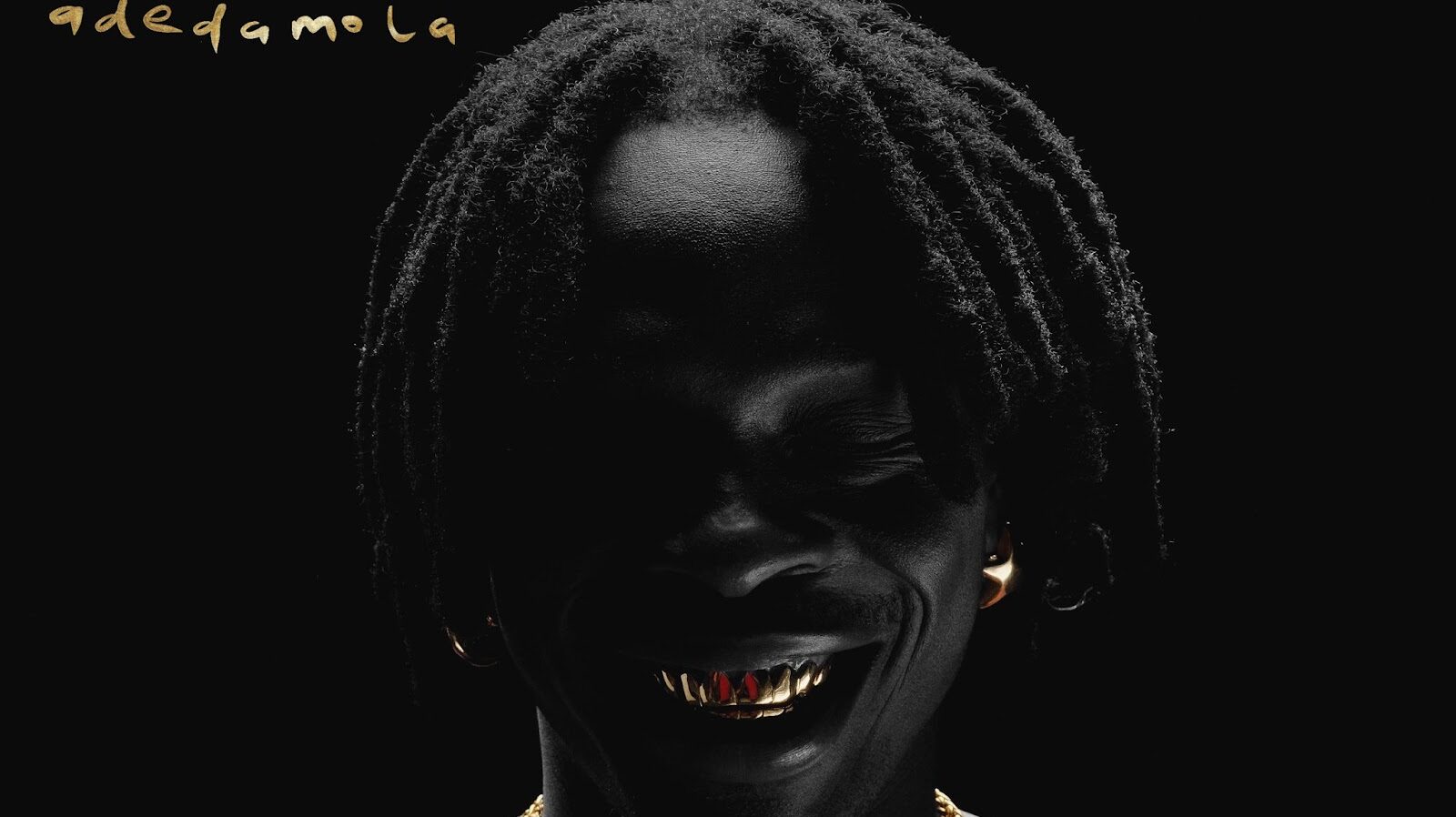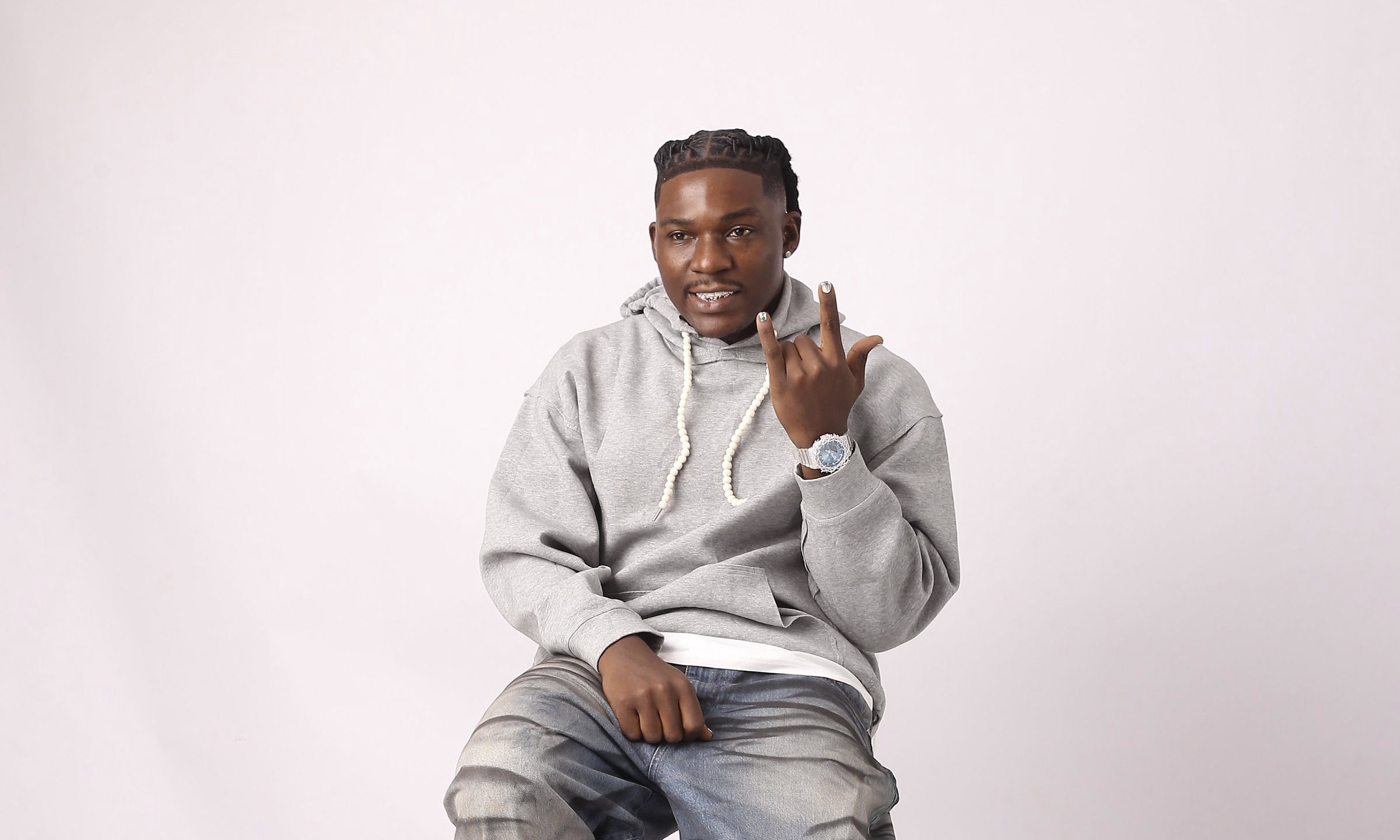Five years ago, Adedamola Adefolahan, or Fireboy DML (as he’s professionally known) surfaced online, seeking to find his feet in the music industry, but with an unrelenting desire to pour out his poetic tunes. Like a hungry artist passionate about releasing his artistic pieces, he set on the journey like a young man with a bag of dreams. This path led to his breakthrough in 2019, with his debut album, “Laughter, Tears and Goosebumps”, earning him a place on the Afropop new school team, clinching him hits songs and recognitions.
But like a champion, Fireboy established his artistry as Afropop/RnB’s foremost artiste with his sophomore album, “Apollo”, in 2020. The 17-track project filled with stellar vocals, infectious hooks, and ingenious pen game, cemented the artiste as a lover boy persona with poetically fueled passion. Unlike his debut project, the album featured voices from other artistes such as D Smoke, label boss–Olamide, and one of his most revered artiste, Wande Coal.
The album garnered massive attention and critical acclaim, which many described as his best work ever, and one of his most successful projects. The singer didn’t just erect his place on the Mount Rushmore of new generation artistes but bagged notable recognitions including his flawless victory at the Headies Awards.
His trajectory envisioned greatness and oozed monumental greatness when he further teamed up with International star, Ed Sheeran on the ‘Peru remix’, achieving global stardom. With his third studio album released, listeners were eager to immerse themselves in his poetic lover boy aura. But they were swerved into the playboy demeanor, which he cloaked.
While the album offered a well-curated listening experience and projected as his most successful project, the public perception regarded it as an off-brand persona, saying it lacked the substance they first fell in love with, hence stating his “falling off”. The mainstream music and label mate breakthrough at the time were factors to it. Perhaps these criticisms might have pushed Fireboy to the edge, as he struggled to prove the naysayers wrong with further singles released.
But two years after his last body of work, Fireboy DML seeks to redeem himself with his self-titled fourth studio album, “adedamola.” While pre-released songs off the album like ‘obaa sima’, ‘yawa’ and ‘everyday’ signaled his return to his roots, it is clear his latest body of work proves his testament to being Nigeria’s foremost Afropop/RnB artiste.
“adedamola” which translates to ‘the crown has added to my wealth’ opens with a vibrant track, titled “iseoluwa”, a gratitude-themed song laced with traditional Yoruba instruments and lyrics in the Yoruba language. On the Bassiqally and Nxrth sonic construction, Fireboy displays a thankful heart using the Haruna Ishola line Ise Oluwa ko seni toye. The saxophone dominance and vocal backups perfect the song’s groovy bop cementing Fireboy’s reflective nature. Life has been good to me, I do not take this with levity. He sings. Looking at his other label mates’ released projects this year, gratitude and acknowledgment of a supreme being (God) is a theme that finds its place on their albums.
Following the rhythmic intro is the 90s-pop production flanked with elements of log drums, “call me” produced by Nxrth (Fireboy’s brother) and Bassiqally. Here, Fireboy begins his tale of love as he discloses his commitment to his muse. Closely tailing is the third track, “ecstasy”, an emotive directed production, showing Fireboy’s ability to effortlessly offer sensual melodies. Like he did with “Tattoo” off his sophomore album. But this time, he calls Seun Kuti for assistance to add a touch of soul with his saxophone performance. “hell and back” is another Afropop track with a soulful mix of saxophone and vocals from Fireboy displaying his brilliant artistry.
On the mid-tempo track, “letting go” produced by godomarr, he takes a different turn. While Fireboy transitions from a romantic lover to a jilted lover, he teams up with Lojay to solidify his unwillingness to move on. Lojay excellently delivers his verses, questioning his muse’s decision as they both conclude that sometimes love means letting go.
But like the passionate lover that he is, he returns to declare to his lover again.
Sometimes I know it, sometimes I don’t know how to show it, but somewhere at the back of your mind, I hope that you know I love every single moment with you.
On the groovy, vibrant track, “back n forth” highlighted by traditional Yoruba instruments like omele and bata drums, and violin and saxophone performances, Fireboy reminds his muse of his unfailing love. To perfect the sonically constructed track by five hit makers including ID Cabasa, and Eskeez, Fireboy teams up with legendary musician, Lagbaja to add his touch of life. Fireboy displays subtle falsettos on the nostalgic employed track and Lagbaja returns the gesture with his signature saxophone performance and energetic melodic verses. It is a one-track listeners would never get enough as it takes them to the 2000s era of Lagbaja classics.
But the singer-songwriter continues to yearn for love on the soulful, solemn track, “ready” featuring Grammy Award singer-songwriter and multi-instrumentalist, Jon Batiste. The acoustic track sees Fireboy effortlessly deliver his vocal prowess as he takes listeners on an emotive ride with his high key notes and falsettos while Jon Batiste perfects it with stellar piano notes.
The mood changes and the energy picks up with the next track, “wande’s bop.” Similar to his counterpart, Ayra Starr’s decision to acknowledge her idol, Don Jazzy on her album, Fireboy makes another effort to pay homage to Wande Coal. The Fireboy and DJ Spinall collaboration takes reference to Wande’s early songs, similar to The Kick. The track automatically identifies as a club banger, which Fireboy never fails to give in the myriads of his love songs. “change your life” follows after, highlighting an Afro-Funk, uptempo track showcasing Fireboy’s genre-blending artistry.
Before the ‘adedamola’ surfaced, songs like “obaa sima”, “everyday” and “yawa” were pre-released, and while they were nothing short of Fireboy’s excellent artistry, they failed to capture his ingenuity. But with the release of the 14-track project, they all come to fit into the bigger picture. “obaa sima” produced by Nxrth, Bassiqally, and Pheelz sure captures the essence and provides cohesiveness to the project.
Alongside, “yawa” where Fireboy gives a middle finger to naysayers. On the Telz and Magicsticks production flanked with elements of Amapiano, Fireboy neglects his naysayers, delivering braggadocio lines with allusion to his vices. It also features backup vocals from label mate and boss, Asake, and Olamide. “everyday” on the other hand, returns to his lover boy persona. The groovy yet steady tempo without any log drum element is a brilliant sonic construction of Blaisebeatz, with songwriting credited to Olamide, and Fireboy.
Before that, the “need me” mid-tempo track with log drum patterns picks its theme from “obaa sima”, showcasing his commitment to his lover. Ending the masterpiece is the instrumental, “jon’s interlude”– a piano rendition of Jon Bastite from the seventh track, “ready.”
On ‘adedamola’, Fireboy reunites his lover boy and bad boy persona, immersing listeners in the music they first fell in love with. While the tracks don’t show a fresh perspective of his artistry, it is clear the artiste has curated a perfect listening experience with his infectious hooks, and vocal and lyrical prowess for die-hard lovers, and also first-time listeners who may have strayed from his music.
Fireboy cements his throne on Nigeria’s” Afropop/RnB scene, redeeming himself back in the hearts of many. Is this Fireboy’s best work of art? Evidently not. But with this self-titled project which reflects his innate talent, it appears he won’t be dropping the crown soon.
Rating: 8.5/10





